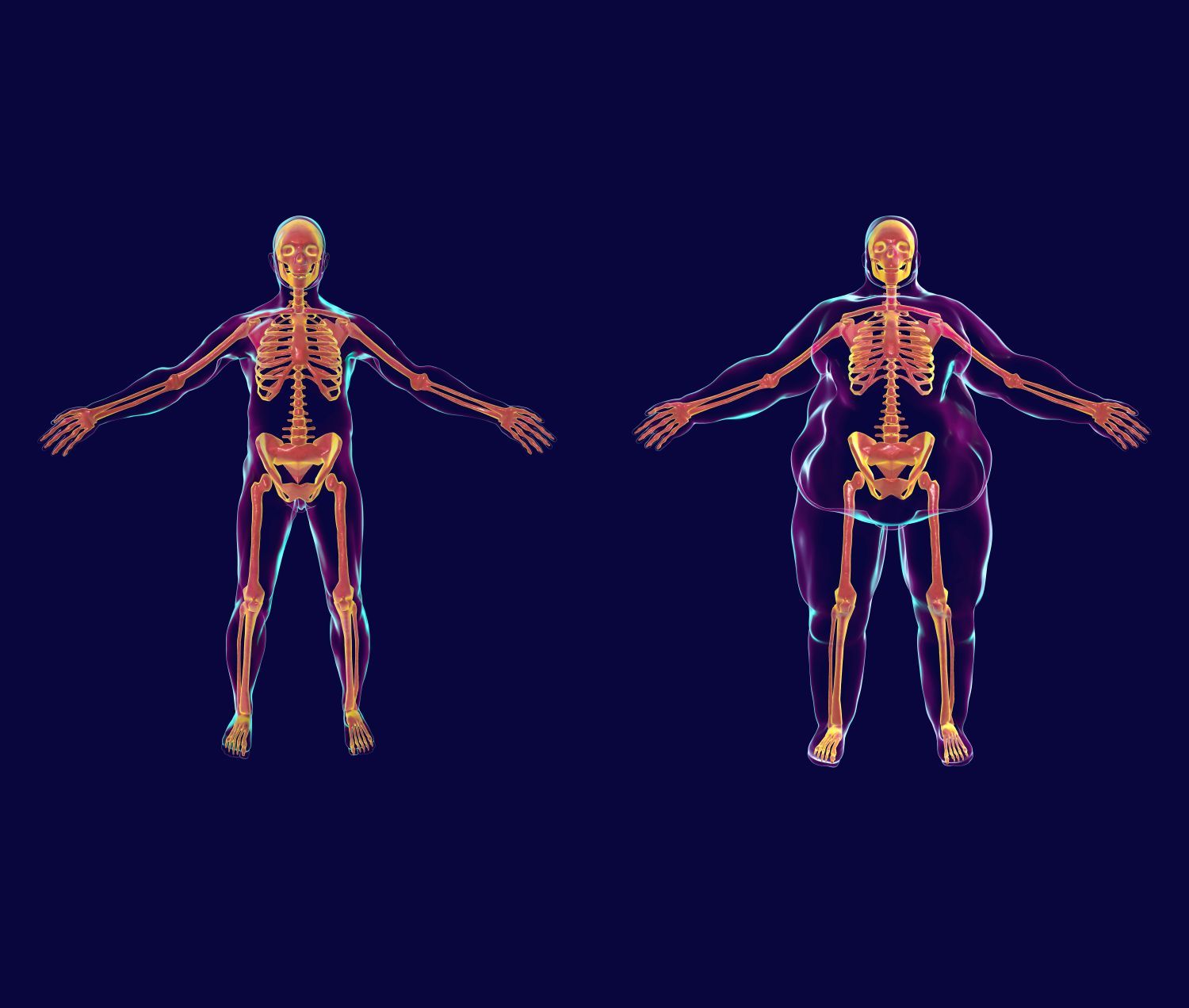Being overweight promotes cancer and makes both the early detection of tumors and their treatment more difficult. This makes prevention all the more important.
Alongside tobacco and alcohol consumption, obesity is one of the most important preventable risk factors for cancer. There is a proven link to obesity for at least 13 types of cancer. These include carcinomas of the intestines, kidneys, oesophagus, pancreas and gallbladder and, in women, of the breast after the menopause, the uterus and ovaries.
Visceral fat in particular, which envelops the internal organs, is considered a cancer driver. The more overweight someone is and the longer the excess weight persists, the higher the risk. However, cancer cannot be traced back to a single factor – and cancer often develops without a recognizable risk factor.





